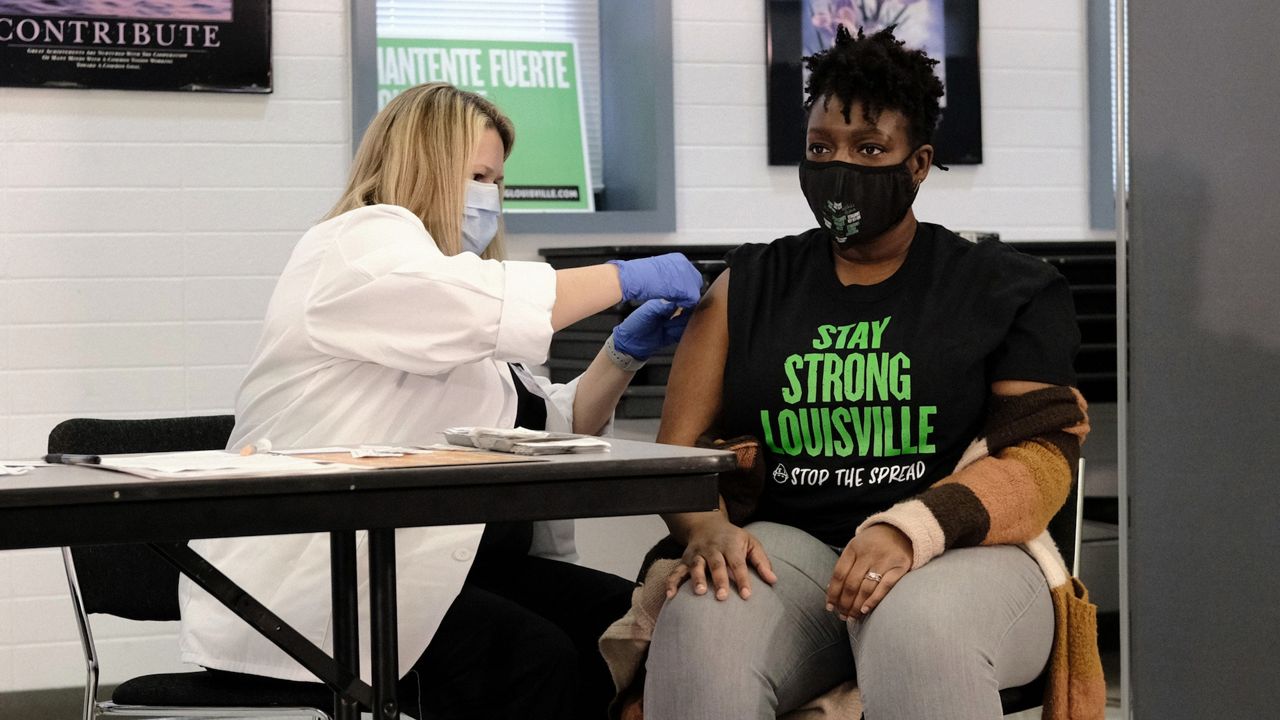LOUISVILLE, Ky. — With the delta variant of COVID-19 increasing cases and hospitalizations in Louisville, one positive trend related to pandemic is emerging in the city: More people are getting vaccinated.
Last week was the fourth in a row in which the number of people receiving their first dose of a vaccine increased, according to data on the city’s COVID-19 dashboard. The four-week increase comes after a steady seven-week drop in first doses.
“That is promising given how flat that had been for the previous weeks,” said Connie Mendel, assistant director of Louisville Metro Department of Public Health and Wellness.
Statistics show that in the week ending last Saturday, 7,500 people received their first dose. That’s up from 6,600 the week prior and 5,900 the week before that. On average, the number of people receiving their first dose has increased by 975 in each of the last four weeks.
Before the uptick began in the second week of July, weekly first doses fell by an average of 1,650 in each of the previous seven weeks. The week of July 10, when only 3,600 first doses were administered, marked a low point.
Louisville's increase in vaccinations mirrors national trends. According to data from the Centers for Disease Control and Prevention, vaccinations are up in early August as compared to early July, with roughly twice as many people receiving their first dose early this month than last month. Some experts have attributed the reversal to fear of the delta variant, along with a growing trend toward vaccine mandates.
Even with the increase, only 58% of Louisville residents have received a first dose of the vaccine. While Mendel called the rising weekly vaccinations “good news," she said “we still have a lot of people we need to get vaccinated.”
How that is accomplished is an open question. Mayor Greg Fischer said Tuesday that the city has done all it can to make vaccines available, with over 100 “access points” for those who want to get vaccinated. “And we’ll take the vaccine to you with LouVax mobile,” he said.
Nearly eight months after the vaccine became available though, he said increasing vaccinations is less about accessibility than persuasion. “It’s really down to one-to-one contacts right now,” he said. He called on those with unvaccinated family members and friends to encourage them to get the shot.
Dr. Jon Klein, Vice Dean of Research at the University of Louisville School of Medicine, has been having these types of conversations lately. “There’s a good group of people who are still persuadable and still want to have questions answers,” he said. “What I hear the most that makes me feel optimistic is that people want to have their questions answered about the vaccine.” He said if a trusted source answers those questions, “frequently those people will go and get vaccinated.”
Another development that could boost vaccine uptake is the Food and Drug Administration’s (FDA) anticipated full approval of the Pfizer vaccine. So far, all of the available COVID-19 vaccines have only received emergency authorization. Klein said full FDA approval will likely push some holdouts over the line.
“I expect a small increase in the number of people who are stepping forward to be vaccinated when the FDA approves, probably first, the Pfizer vaccine,” he said. And once they’re vaccinated, he expects others to follow. “There are people who are watching closely their friends and relatives, so there’s a ripple effect.”



